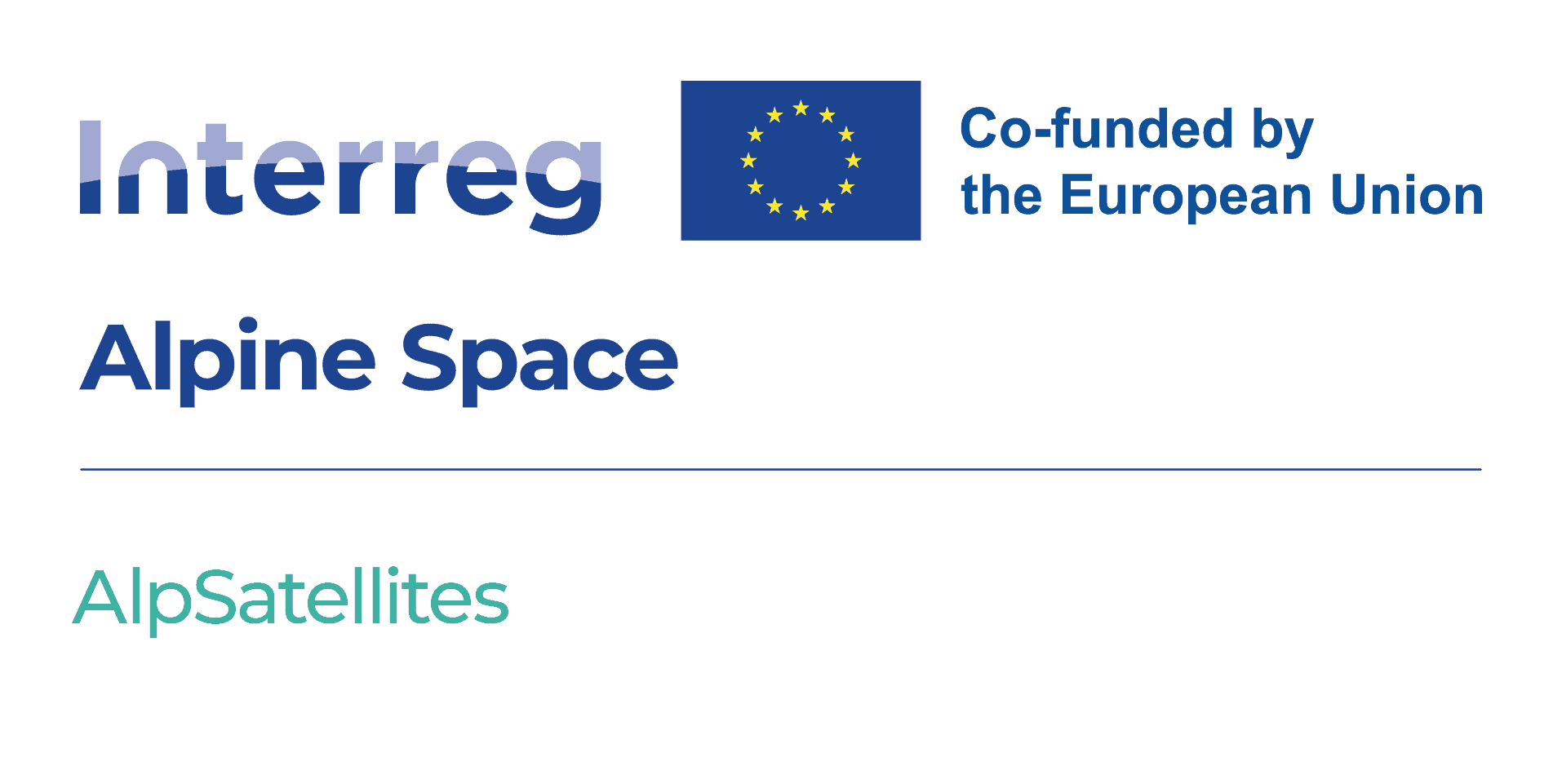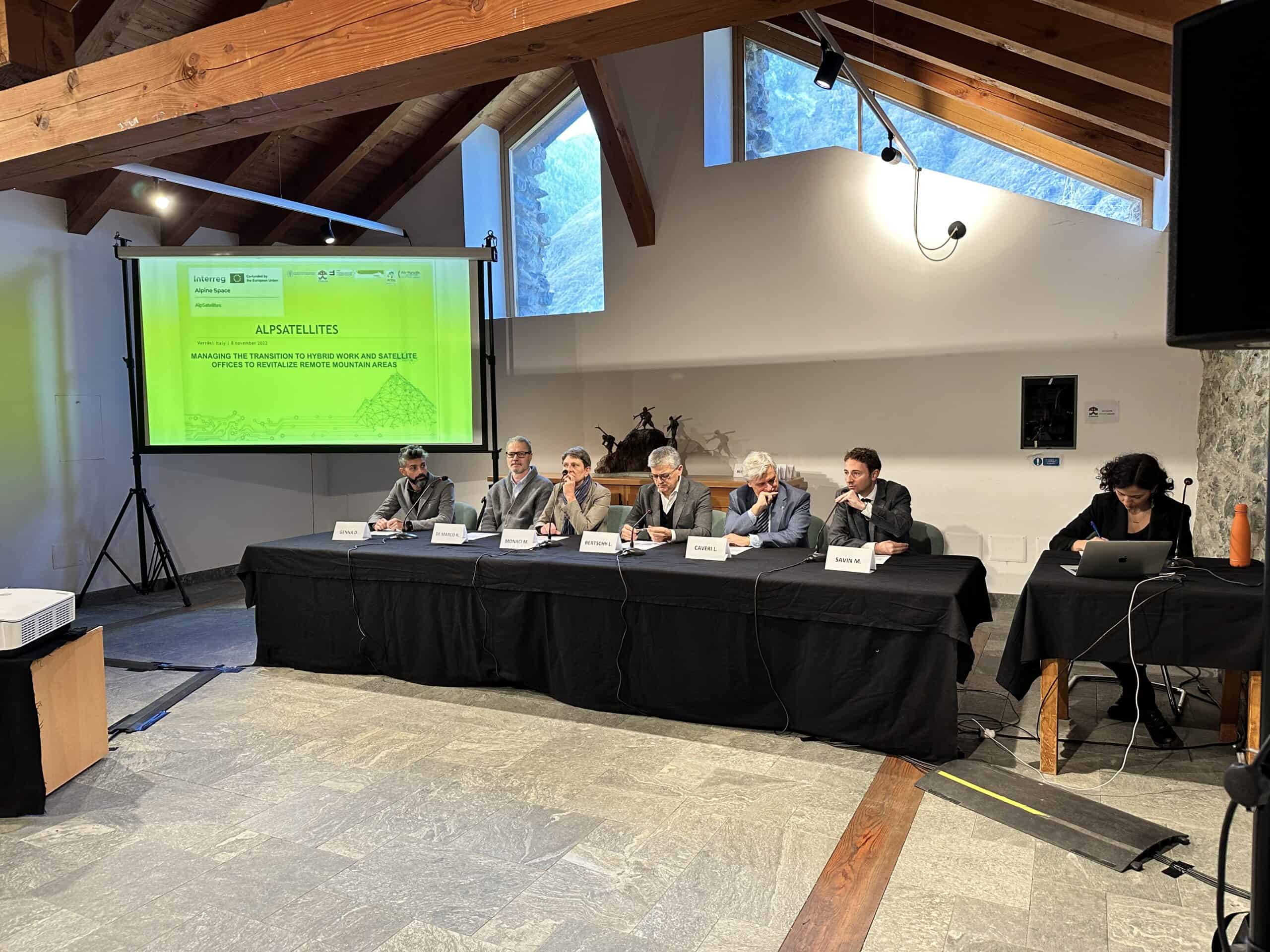
Overview
Many remote Alpine regions are experiencing population decline and ageing, while the urban-rural divide is widening. AlpSatellites analyzed the opportunities and challenges of remote working to attract and integrate young people, workers, and digital nomads into these remote areas. Project partners collaborated with local stakeholders to design tailored solutions to attract and integrate remote workers through digital workplaces and telecommuting. Guidelines have been prepared to create new opportunities for the digital, economic, and social development of their communities, making peripheral areas attractive places for both people and businesses.
Factsheet
- 2021 – 2027
- Innovation and digitalisation supporting a green Alpine region
- SO 3.2 - Reaping the benefits of digitisation for citizens, companies, research organisations and public authorities
-
- AG2 Economic development
- AG3 Labour market, education and training
- AG5 Connectivity & accessibility
- 09/2022
- 02/2024
- 674.701 EUR
- 506.025 EUR
Description
AlpSatellites was designed to prepare a shift to digital workplaces and telecommuting in the Alps. The project explored remote working and telecommuting as an opportunity to mitigate negative demographic trends by attracting new residents and supporting them in settling down.
Partners
- Lead partner
- Italy
- Valle d’Aosta/Vallée d’Aoste (ITC2)
- Aosta
- Esmeralda Toffano
- progetti@univda.it
- Italy
- Valle d’Aosta/Vallée d’Aoste (ITC2)
- Verrès
- Sergio Vicquéry
- info@cm-evancon.vda.it
- Austria
- Vorarlberg (AT34)
- Dornbirn
- Florian Maurer
- Florian.maurer@fhv.at
- Austria
- Vorarlberg (AT34)
- Doren
- Guido Flatz
- Guido.Flatz@doren.at
- France
- Provence-Alpes-Côte d’Azur (FRL0)
- AIGUILLES
- PASCALE TONDA
- Pascale.acssq@queyras.org
- France
- Provence-Alpes-Côte d’Azur (FRL0)
- MARSEILLE
- KARINE WEPIERRE
- Karine.wepierre@univ-amu.fr
- 45.74508367.3174578
- 45.66730237.6859067
- 47.40658139.744216731866953
- 47.49242639.8784317
- 44.7811056.8686622
- 43.29169445.3560368
Outcomes
-
Policy guidelines “Enabling a remote-working ecosystem to make remote areas thrive"
This output will specifically target decision and policy makers. It will be divided into 3 chapters: 1 Taking into account legal consequences of remote working solutions in the Alpine Space 2 Playing a catalyst role: how to enable the remote working ecosystem 3 Policy Takeaways: preparing the Alps regions for the “new normal”
Pilots
-
Managing the transition to hybrid work and satellite offices to revitalize remote mountain areas
In response to the dynamic landscape of remote work and coworking spaces, collaborative initiatives have been undertaken by the AlpSatellites partners from France, Italy, and Austria. These endeavours aimed to explore inventive solutions that effectively tackle the challenges and seize the opportunities presented by the transformative shift in remote work and co-working spaces (activity 1.4.1).
While there are shared characteristics and challenges among the countries, the regions also exhibit notable differences. Consequently, the maturity level of each country’s solution varies, reflecting the nuanced considerations inherent in addressing the diverse landscapes and demands of remote work and coworking spaces.
The French partners adopted a collaborative approach, engaging regional stakeholders in the last phase of action. They conducted a feasibility study using an Action Sheet and a Business Model Canvas, focusing on a shared digital platform for remote workers in a new territory. The proposed platform aims to provide practical information and enhance the remote worker experience, with a cost-effective strategy financed by local authorities, subsidies, and potential European funding, to be validated by a team coordinated by PETR (Pôle d’Equilibre Territorial et Rural1) and in agreement with communes.
Italy implemented a methodology to assess the economic feasibility of establishing coworking spaces in Ayas Valley. The evaluation considered operational costs and potential revenues, providing insights into the viability of such spaces in different geographical sub-areas.
Austria, recognizing the transferability of its solution, structured a comprehensive framework and guidelines for implementing similar projects. The feasibility and impact study, designed as a set of guidelines, utilized various tools such as the Business Model Canvas, SWOT analysis, and risk matrix.
Each country’s approach was unique, tailored to its specific needs and regional characteristics. The collaboration among key stakeholders, clear goal setting, feasibility studies, and risk assessments were common threads binding these initiatives.
Project calendar


